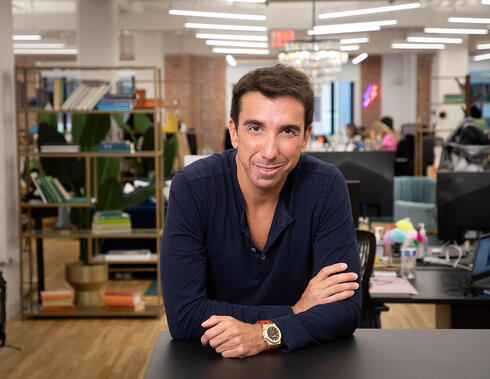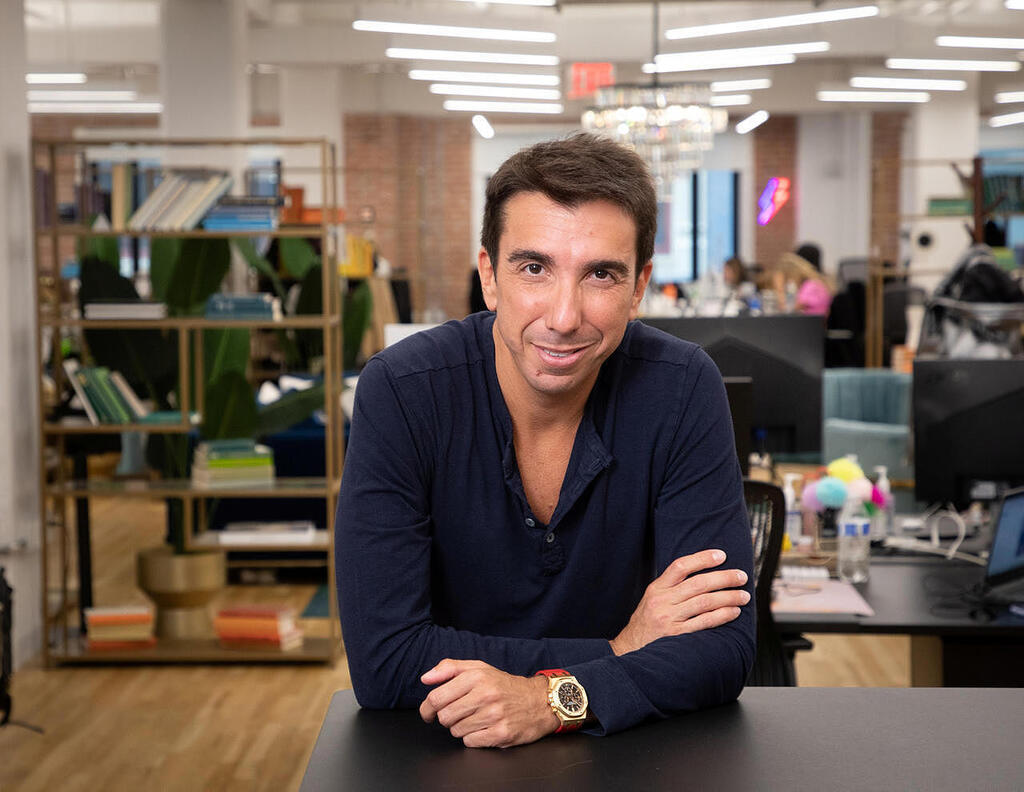
Oren Holtzman’s $1.75 billion journey: From accountant to Oddity billionaire
The cosmetics-tech hybrid he built is now worth more than double its IPO price.
About a year ago, in June, a wedding was held at the Carmel Forest Spa Resort. The groom, Oren Holtzman, had rented out the hotel for two days and invited around 300 guests—at his own expense—to celebrate his wedding at the age of 40. Holtzman, one of Israel’s least-known billionaires, kept a low profile at the event, which barely leaked to the press. He has maintained that discretion throughout his decade-long rise to wealth, with only his company’s IPO drawing attention to his name.
On Monday, Holtzman sold 10% of his stake in Oddity, the tech and cosmetics company behind the makeup brand Il Makiage, for $385 million. Following the sale, his stake dropped to 23%, though he still controls 75% of the voting rights—thanks to Oddity’s dual-class share structure on the Nasdaq.
The shares were sold to JPMorgan in a tender offer for international banks, priced at $70 per share—double their IPO price two years ago. After deducting JPMorgan’s commission of 30 million shekels (roughly $8 million), Holtzman received approximately $355 million, or $65 per share. Shares fell 14% at the market open on Monday to $60.
Not Including Salary and Dividends
Just one year after Oddity’s IPO, Holtzman has already achieved $1.75 billion in value from his stake—through prior share sales and the current value of his holdings, now estimated at $900 million. This estimate excludes salary and dividends. His personal fortune is approaching that of each Wiz cofounder, who are expected to receive around $2.2 billion apiece following Wiz’s $32 billion sale to Google-parent Alphabet.
Holtzman was just 29 when he and his sister Shiran bought Il Makiage out of receivership in 2013 for 12 million shekels ($3.37M) and assumed 80 million shekels ($22.5M) in debt. At the time, Holtzman was a young accountant at EY Israel. He realized he wouldn’t become wealthy at the firm, raised capital from family members, and partnered with Shiran to take over the struggling cosmetics brand.
For the first five years, Il Makiage operated only in Israel through local stores. But the vision was always to expand to the U.S. In 2017, Holtzman pitched the plan to LVMH’s investment arm, which acquired a 35.5% stake for $34 million. The capital was used to launch the brand in the U.S. the following year.
Holtzman saw that only 10% of beauty sales happened online, and aimed to transform e-commerce in the space. The company launched a website that used a questionnaire and photo upload to match users with products. Working with an Israeli AI startup, Oddity refined this technology and scaled rapidly. By 2019—just a year after entering the U.S.—Oddity became the fastest-growing beauty brand, jumping from 300 to thousands of daily orders. LVMH ultimately sold its stake for a more than 15x return.
Oddity's U.S. Takeoff and Tech DNA
"His mentor as a young man was Cellcom chairman and IDB executive Ami Erel,” said a close acquaintance. “He works like crazy—days and nights.” Oddity’s major growth came during COVID-19, when it rebranded itself in the U.S. as a tech company, not a cosmetics company. As Shiran Holtzman Erel told Calcalist in 2020: “In Israel, we’re a proud retail player; in the U.S., we’re 100% online.”
Today, Israel is the only country where Oddity operates 20 physical stores. The company also has R&D operations in Serbia and a growing tech stack from multiple acquisitions: Missbeez (a mobile skincare services platform), NeoWize (an AI-based personalization startup), and Voyage81 (an AI firm founded by veterans of Unit 81 that developed technology to decode melanin, hemoglobin, and blood flow in the skin for precise product matching).
By 2023, when Oddity filed its IPO prospectus, 21% of U.S. beauty purchases were already made online. The company reported 50% annual revenue growth—from $222 million in 2021 to $325 million in 2022, $508.7 million in 2023, and $647 million in 2024. Net income in 2024 reached $101 million, up from $58.5 million the previous year.
Oddity raised $423 million at a $1.97 billion valuation in its July 2023 IPO. It peaked at around a $4 billion valuation earlier this month, before this week’s drop, which now has the company valued at $3.36 billion. Holtzman sold $100 million in shares a month before the IPO and another $230 million during the offering. Earlier, in early 2022, he sold shares worth $130 million. Including his remaining 23% stake, his total paper and realized wealth from Oddity stands at approximately $1.75 billion. He continued to serve as the CEO and his preferred shares ensure he retains majority voting control.














